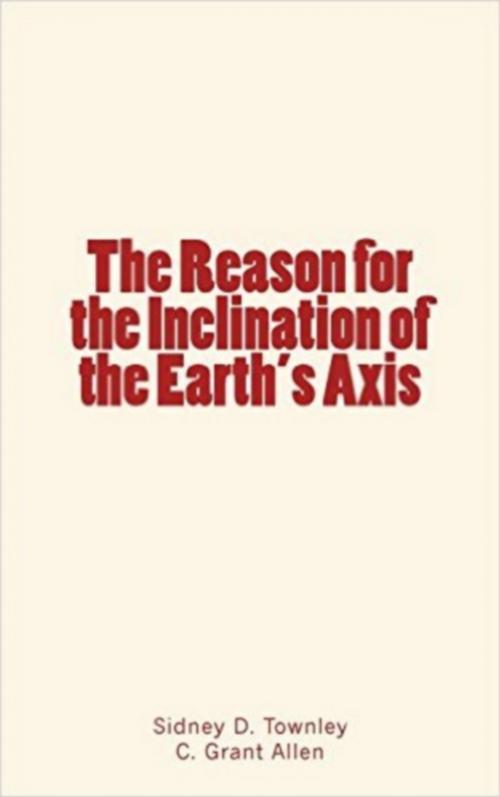The Reason for the Inclination of the Earth's Axis
Nonfiction, Science & Nature, Nature, Environment, Weather, Science| Author: | C. Grant Allen, Sidney Dean Townley | ISBN: | 9782366593471 |
| Publisher: | Editions Le Mono | Publication: | November 12, 2016 |
| Imprint: | Editions Le Mono | Language: | English |
| Author: | C. Grant Allen, Sidney Dean Townley |
| ISBN: | 9782366593471 |
| Publisher: | Editions Le Mono |
| Publication: | November 12, 2016 |
| Imprint: | Editions Le Mono |
| Language: | English |
Have you ever wondered why the Earth is tilted on its axis? This book presents the Reason for the Inclination of the Earth. "The earth has two principal motions, one of revolution about the sun, the other of rotation upon an axis. The revolution about the sun is accomplished in 365 and a quarter days at an average speed of nineteen miles per second, or thirty-three times the speed of the swiftest modern projectile. The rotation upon its axis is accomplished in twenty-four sidereal hours, and since the equatorial circumference of the earth is nearly 25,000 miles, a point on the earth's equator has a speed of rotation of over one thousand miles per hour. In form the earth is an oblate spheroid, a flattened sphere, and the axis about which it rotates coincides very nearly with the shortest axis of the body. If a plane be passed through the center of the earth perpendicular to the axis upon which it rotates, not perpendicular to the shortest axis, this plane will cut the surface in a circle which is known as the equator...
Have you ever wondered why the Earth is tilted on its axis? This book presents the Reason for the Inclination of the Earth. "The earth has two principal motions, one of revolution about the sun, the other of rotation upon an axis. The revolution about the sun is accomplished in 365 and a quarter days at an average speed of nineteen miles per second, or thirty-three times the speed of the swiftest modern projectile. The rotation upon its axis is accomplished in twenty-four sidereal hours, and since the equatorial circumference of the earth is nearly 25,000 miles, a point on the earth's equator has a speed of rotation of over one thousand miles per hour. In form the earth is an oblate spheroid, a flattened sphere, and the axis about which it rotates coincides very nearly with the shortest axis of the body. If a plane be passed through the center of the earth perpendicular to the axis upon which it rotates, not perpendicular to the shortest axis, this plane will cut the surface in a circle which is known as the equator...















